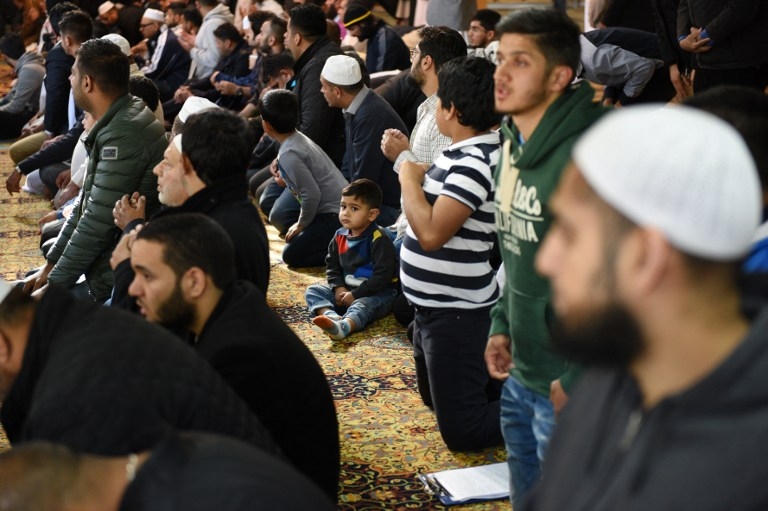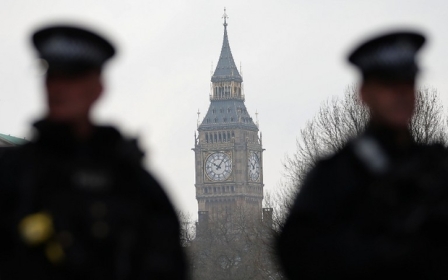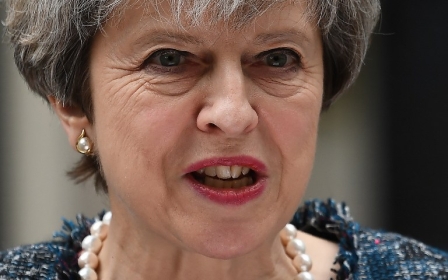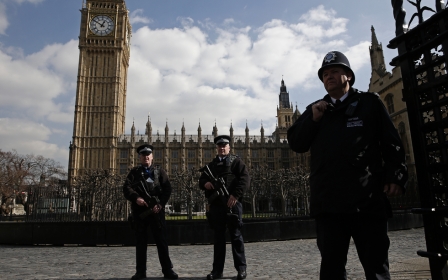Muslim campaign groups publish key demands ahead of UK election

Muslim organisations in the UK this week launched their manifestos ahead of the 8 June general election in an attempt to lobby potential parliamentarians on the issues they believe matter most to Muslim communities across the country.
Addressing concerns over the rise of Islamophobia and counter-terrorism strategies, as well as calling for more engagement with a range of representatives from Muslim communities, were on top of the lists of demands made by the various advocacy groups.
In its manifesto published on Tuesday, the anti-Islamophobia advocacy group Muslim Engagement and Development (MEND) called on the UK’s leading political parties to focus on “key areas of concern to Britain’s Muslim community” which include the rise of Islamophobic hate crime post-Brexit, anti-Muslim discrimination in the workplace and preserving access to halal meat and the freedom to wear religious dress.
“We’ve sent it [the document] out to all the political parties nationally and also locally we are approaching all the potential parliamentary candidates,” said Azad Ali, head of community development and engagement at MEND.
“The idea is to target widely all the different constituencies across the countries, but because we are focusing on the Muslim community, we are focusing on some of those key areas where the Muslim vote is perhaps higher,” he told Middle East Eye, mentioning places like Birmingham, Bradford and East London.
According to MEND, “The UK’s Muslim community could potentially have a decisive outcome in over 80 seats” in the general election.
“In 83 parliamentary constituencies, Muslims make up an estimated 10 percent or more of electoral voters… making the Muslim vote significant in determining key battleground seats in June’s upcoming elections,” the group said in a statement.
Concerns over counter-terrorism
The group’s manifesto also called on political parties to take British Muslims’ concerns over counter-terrorism strategies in the UK more seriously.
The launch of the document came as Muhammad Rabbani, the international director of human rights group Cage, was charged after being arrested during a Schedule 7 examination at London's Heathrow Airport last year. Rabbani said that he declined to disclose passwords for a phone and a laptop to protect the confidentiality of a client.
Since the war in Syria started in March 2011, between 700 and 850 British citizens are estimated to have travelled there to fight with anti-government militants.
"Within the current climate on radicalisation and Syria, listening to the voices of young British Muslims is therefore crucial if the UK government, the police and other key stakeholders are serious about preventing the escalation of young people going out to fight in Syria," wrote Imran Awan, associate professor in criminology and an expert on issues related to Islamophobia.
MEND also called on British Muslims to refer to a list of hustings questions the group had produced to help voters raise their concerns when interacting with candidates.
In the run-up to the May 2015 general elections, MEND built links with both major parties – and was chosen as an “official partner” by the Electoral Commission for the poll – after claiming to promote “democratic engagement” by Muslims.
Meanwhile, the Muslim Council of Britain (MCB) also published a document listing eight key issues of importance to British Muslims, which overlapped with MEND’s manifesto.
“We [MEND and MCB] have similar interests in the areas of Islamophobia, concerns with the counter-terrorism legislation and the protection of human rights… that kind of stuff we share similar asks,” Ali told MEE.
The MCB’s document asked potential parliamentary candidates to commit to defending the right of Muslims to observe their faith, to combat Islamophobia and other forms of discrimination, to increase the participation of minorities in public life as well as develop an inclusive national curriculum reflecting the diverse religious and ethnic identities of the British community.
Harun Khan, secretary general of the MCB, said: "As the election approaches, we hope that all the main parties engage with Muslim communities and Muslim communities themselves engage in the democratic process. We have seen many arrange hustings, Q&A sessions and even go out campaigning for their local candidate. It is an important election - make your voice heard."
The MCB is a national representative umbrella body of the Muslim community in the UK with over 500 affiliated national, regional and local organisations including mosques, charities and schools.
The group also made more international demands including a call on potential parliamentarians to recognise Palestine as an independent state and to uphold principles of poverty alleviation and justice in UK foreign policy.
New MEE newsletter: Jerusalem Dispatch
Sign up to get the latest insights and analysis on Israel-Palestine, alongside Turkey Unpacked and other MEE newsletters
Middle East Eye delivers independent and unrivalled coverage and analysis of the Middle East, North Africa and beyond. To learn more about republishing this content and the associated fees, please fill out this form. More about MEE can be found here.




